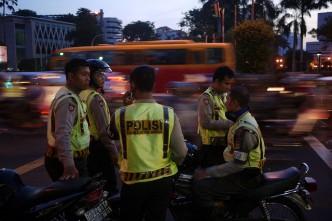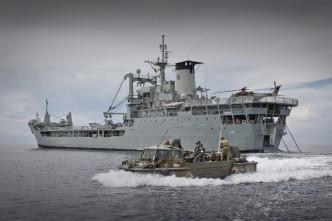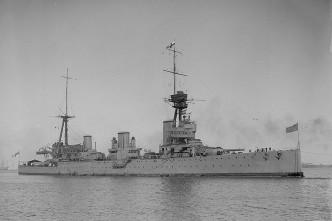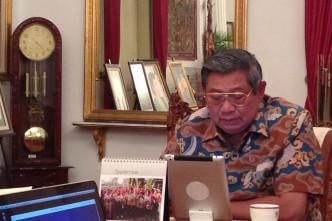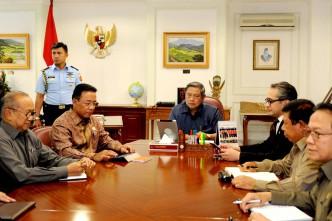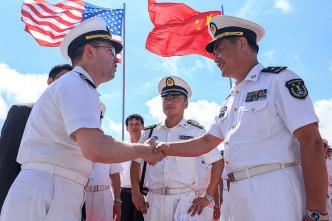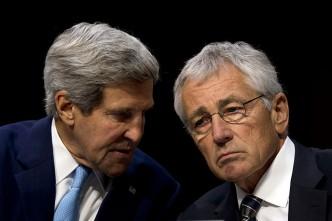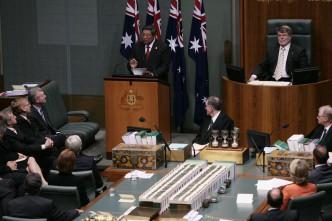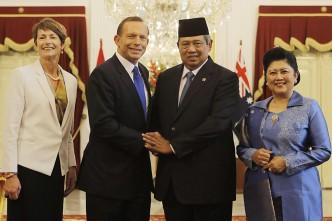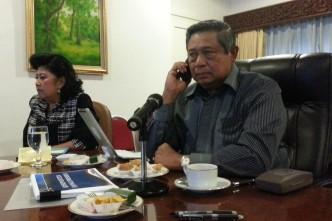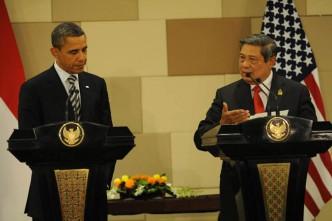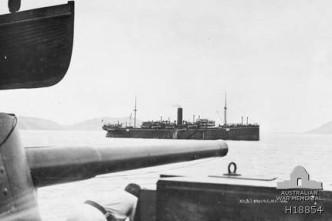The Interim Agreement reached in Geneva last Saturday between the P5+1 and Iran over the latter’s nuclear program is a high-stakes gamble for Middle-East security. At best the deal somewhat slows Iran’s capacity over the …
Naval navel gazing (part one here) is a complex endeavour with many participants: experts both civil and military mingle with ministers and manufacturers and even the odd puzzled taxpayer. Drawing on the previous column gazing …
In a recent post, I introduced a new PRC book entitled ‘China Is Not Afraid — New Threats to National Security and Our Strategic Responses’, (中国不怕——国防安全新威胁与我们的战略应对). I suggested that the volume is part of a …
Last week Indonesian National Police (POLRI) chief General Sutarman announced that cooperation with the Australian Federal Police (AFP) on people smuggling had been suspended in light of the recent spying row between Australia and Indonesia. …
In the last post I concentrated on the ADF’s tasks. For this post I will add a few points about the new Landing Helicopter Dock (LHD) ships. The small ships and catamarans that some have …
The state of Australia’s navy debate looks like this. The experts war with each other over the best size of ships as close personal combat is mixed with the exchange of long range metaphors. The …
The story of the week has been, of course, the deterioration of Australia–Indonesia diplomatic ties in the wake of a spying scandal concerning the Indonesian President. And while there’s been no shortage of news stories …
Allegations of Australian espionage towards Indonesia have recently ruffled feathers in Jakarta. While the espionage itself has been an open secret, what Indonesia doesn’t accept, let alone understand, is the depth and extent of the …
The Chinese military has been doing some sabre-rattling lately. While PLA naval forces have been busy asserting China’s claims in the East China Sea and the South China Sea, there’ve been larger efforts in train …
Please stop the fixation with platforms and the past! Let’s better understand Australia’s amphibious capability of the future. Chief of Air Force Air Marshal Geoff Brown said it well at an ASPI dinner in October. …
Australia has recently faced criticism for its active role in US-led spying networks in the region, particularly from Indonesia. But the backlash to digital eavesdropping hasn’t been isolated to diplomatic circles and leadership groups, or …
Australia’s new Foreign and Defence Ministers will sit down for the first time with their US counterparts in Washington on Wednesday (Thursday morning Australian time) at the annual AUSMIN consultations. Julie Bishop and David Johnston, …
For nearly ten years as Indonesia’s leader, Susilo Bambang Yudhoyono has presided over the most stable and productive era in the tumultuous diplomatic relationship between Jakarta and Canberra. Australia’s extraordinary $1 billion act of generosity …
That Australia spies on Indonesia comes as no particular surprise—most people would assume that our security agencies keep an eye on what is going on in the region. However, what has generated the current furore …
We thank Joanne Wallis and other scholars for their interest in our Special Report, A stitch in time, which aims to put Bougainville’s coming referendum back on the policy radar. While all the responses agree …
After this week, Prime Minister Tony Abbott might be forgiven for wanting to revise his ‘more Jakarta and less Geneva’ mantra. (More Wellington, anyone?) The apparent leaking of the Australian Signal’s Directorate information about Indonesian …
Peter Jennings and Karl Claxton’s recent ASPI Special Report A stitch in time: Preserving peace on Bougainville represents an important—and necessary—attempt to move Bougainville to the centre stage of Australian foreign and strategic policy debates. …
Recent posts on The Strategist have looked at Indonesia’s future strategic choices between the US (and its allies) and China. Daniel Grant presents an interesting view that Jakarta won’t easily side with Washington, even in …
Thanks to Ed Snowden, the whole world now knows about the NSA’s surveillance capabilities. In his thoughtful and timely piece on The Strategist, Klee Aiken asks if the mass surveillance of big data really keeps …
Nic Stuart made a straightforward point last Wednesday: if you want an amphibious capability, make your case. I do, so I will. But at least there has been plenty of debate. By a rough count …

